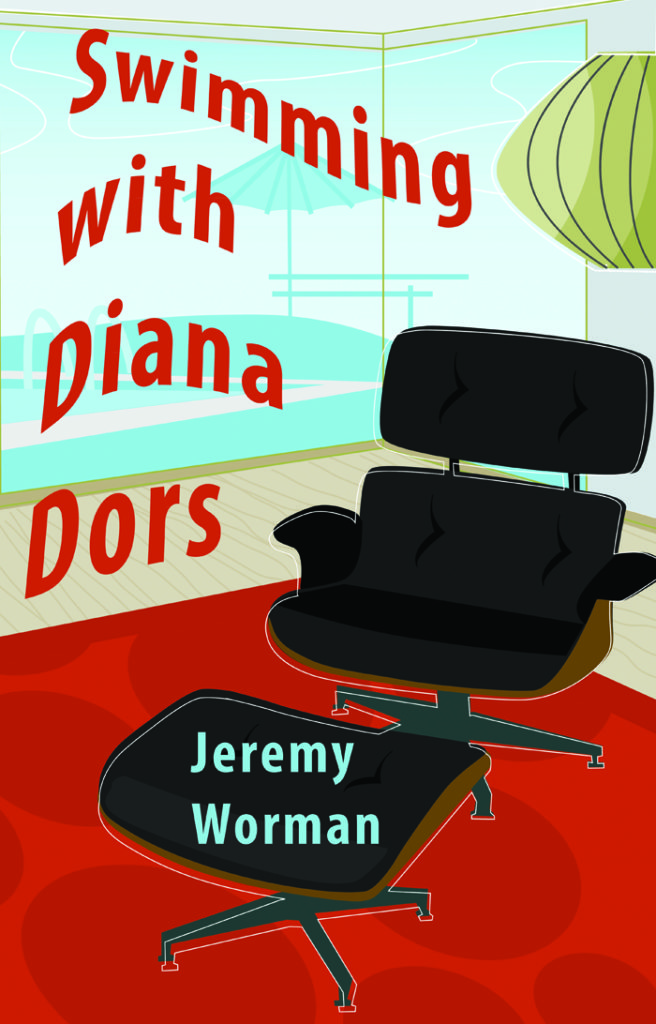(Published in Through the Woods, December 2004)
Anastasia Romanov’s Diary: Ekaterinburg, July 16, 1918. Evening…
Rasputin’s eyes cover me like waves of silk sheets until a soft darkness shrouds my body. I drown in that strange smell of him. He is more with us now than when he was alive. His eyes cover all of Russia.
‘Anastasia!, Anastasia!, Anastasia!’ If I call my name I can peel his eyes off me.
A soldier bangs open the door with his rifle butt. Mama, sitting closest to the door, turns.
Who was Rasputin’s whore then!’
His vodka-and-garlic sausage smell seems to curdle in the cold air. When he leaves he bows mockingly, a piece of gristle is caught in his beard. Outside other soldiers stamp their feet like wild beasts.
Then a so-called Captain comes in, filthy uniform, unshaven. ‘The commandant is coming to see you later, scum.’ He makes an obscene gesture at Papa.
Will we live in the Winter Palace again? – I see an image of a glass palace being stoned by a mob….
At least we are together once more as a family, and blessed to have with us a few of our closest helpers, including Dr Botkin and Sydney Gibbes, our tutor. How I loved the winters at Tsarsko Selo when we would toboggan through the trees and the air was so pure, the sky so blue. Now I only smell grease, oil, rotting food, soldiers, and worse.
Supper time. Papa sits erect at the top of the table and puts his hand to his ear, listening to the soldiers’ receding footsteps. From under the table he draws out a bottle of wine like a conjurer. It is our last bottle of the six, Chateau Yquem 1906, smuggled into us, a gift from a cousin in England. Papa pours a little into each of our smeared glasses: Mama, Olga, Tatiana, Marie, me, Dr Botkin and Sydney Gibbes. I write down their names, then I write them again, and again. Now I am certain they will be here forever, that all will be well.
Papa says: ‘Put your diary down, Anastasia. You’re becoming a bookworm. When we live in England I shall have to send you to Girton.’
‘That says something for my teaching, sir!’ Mr Gibbes suggests. Everyone laughs, and our happiness moves outwards, keeping us forever safe in the circle of Our Mother.
Two days ago Father Storozhev gave us mass, and I tried to think of Our Mother, but I saw rats scuttling – the biggest seemed to speak: ‘Eat the Tzar’s children, eat them.’
I take wine to Alexie who is sitting up in his little bed in the corner. He holds the glass in both hands like a child.
Dr Botkin looks at papa: ‘To the Tzar of all the Russias!’ When papa looks up Dr Bodkin lowers his eyes. Then Papa toasts Alexie. ‘To the next Tzar of all the Russias!’ Alexie salutes. Tatiana pretends to savours her herring: ‘Gorgeous salmon this year!’ I begin to watch us all as if I am no longer here.
The black woods are tipped with ice. From the dark their brooding eyes on us. The windows are boarded up. Soldiers’ boots crack on the gravel, rifles shoot into the air, they smash their empty vodka bottles. Some urinate through holes in the walls of our flimsy building, making it smell like a stable.
Yesterday, when we exercised in the yard, they sang us a revolutionary song. Their eyes turned black as if they could no longer see an outside world. One of the Letts mercenaries, his face purple-red from a wound, lifted up Tatiana’s skirt: ‘Ever had a good man up there!’
Other soldiers spun her round, and gestured with their crotches. Tatiana slipped and fell on her back. Mama stood over her and said calmly to the soldier with the purple-red face: ‘I see your foot is wounded too. Give me bandages and I shall dress it for you.’
Another soldier smirked, ‘Get your wound dressed by the Tsarina and Rasputin will guarantee you eternal life!’ They heckled, but someone handed dressings, a bowl of water and a bottle of iodine to Mama.
She bent down and undid the young soldier’s boot, cleaned his wound, whcih was a great pusy mass of flesh. The heckling stopped. Mama spoke a prayer to the Holy Mother. Marie bent down and helped Mama. ‘As you know,’ Mama said, ‘Marie and I were nurses for the Russian soldiers in the Great War.’ As they replaced the boot, light from one of the bonfires made a cross over the soldier’s foot. The others gasped, crossed themselves instinctively with their big, bruised hands – and then looked embarrassed.
As the wounded soldier stood up a tear dripped down his cheek, his lips were as soft and yielding as if taking milk form his mother’s breast. I felt as if a night of blackness had given way to a bright dawn – this was a symbol for Russia and for us. I was filled with golden light.
The love of the people will flow again. The seeds of hate sown in their hearts by Trotsky and Lenin will disappear. Papa heard a rumour that Lenin had landed at the Finland Station in early April.
I fill my mouth with Chateau Yquem, and taste the earthiness of grapes and soil. When I close my eyes I see meadows and fields and rivers…my sisters and I are dancing in white summer frocks as handsome young cavalry officers cheer us….
Soon we shall live in Somerset, Daddy will be a farmer. I know King George will help us. I shall learn perfect English: ‘China, Please.’ A crumpet? How delightful. What is the weather in your part of the country? Yes, next week Daddy is off to shoot grouses in Banffshire….’
Czechoslovakian troops are massing on the border, Papa has heard that, the White Army will charge through this black hell to save us.
But in the bottom of my wine glass I see Rasputin’s eyes as big as the globe. That was how it began. Rasputin first came to the Alexander Palace in 1905, I think. He held Alexie’s hand, Rasputin’s eyes rolled in his head, and Alexie’s bleeding stopped. Mama was so overjoyed, she sat on Alexie’s bed and squeezed Rasputin’s hand, the way she is squeezing Papa’s now. Rasputin smiled at us and his eyes made beautiful walls of silk that you wanted to live inside for ever. His eyes became spies in all our hearts.
Even a little wine has brought a tinge of joy to our cheeks. Tatiana does a jig around Alexie’s bed, Papa finds a half-smoked cigar in his pocket and lights it. I think of the old days when he told us stories sitting round the fire, and I ask him to tell us one now, to keep away the wolves.
Alexie smiles as Tatiana teases him, but his brows are furrowed like an old man’s, as if he is reflecting on a long and difficult life. He grips his silver cross, his little fingers as thin as a skeleton’s.
Nagorny, one of the two sailors who had looked after Alexie since he was very young, was shot last month when he stood in front of a Bolshevik solder who was trying to snatch Alexie’s cross. Derevenko, the other sailor, who had looked after Alexie for ten years, left soon after the revolution. He began shouting orders at Alexie, and taunting him….
How does hate enter the human heart? What makes love stay? Holy Mother, bring back the love. Democracy was coming to Russia. We never had this bloodbath of hatred.
A soldier storms in: ‘Commandant Jacob Yurovsky to see you.’
Yurovsky enters. Tatiana stops dancing and sits on Alexie’s bed. They hold hands and the silver cross flickers under their fingers.
‘Orders,’ Yurovsky says. ‘This way. Quick.’
Yurovsky’s glasses rub on the bridge of his nose, making a red stain. They must be coming at last to exchange us.
The family follows Yurovsky downstairs, his uniform unpressed, his epaulette buttons tarnished. Our friends and helpers remain upstairs.
Letts guards jostle us down the narrow stairs and into the cellar. I sit at the back and continue writing.
A representative must be coming from England to negotiate our release, I knew King George would help – or perhaps the guards know the Czech troops are on their way. Oh thank you Holy Mother!
‘What!’ Papa says, ‘What!’
The Letts snort like pigs and raise their guns, point them at us, they are always trying to scare us. Every soldier has Rasputin’s eyes, I hide my diary in the secret pocket of my skirt. I close my eyes, I am tobogganing in the beautiful air at Tsarsko Selo, we are laughing….
They fired so many bullets in our flesh they left the shape of icons on the wall.

